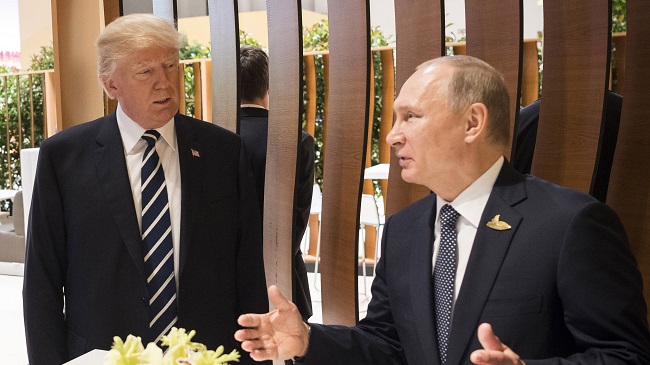
While most of the country remains fixated on the events in Charlottesville, Virginia, and rightly so, the ever-expanding timeline of possible collusion between Donald Trump’s campaign and Russia added another notch to its belt. Late Monday, a Washington Post report indicated George Papadopoulos, the youngest member of the then-presidential candidate’s foreign policy team, tried several times to set up a meeting between Trump and Russian President Vladimir Putin. His first attempt in March 2016 began with an email to several top campaign officials with the subject headline, “Meeting with Russian Leadership – Including Putin.”
According to the Post, internal campaign emails reveal Papadopoulos specifically offered to broker “a meeting between us and the Russian leadership to discuss US-Russia ties under President Trump.” Many campaign officials balked at the proposal, including co-chairman Sam Clovis and advisor and retired Navy Rear Admiral Charles Kubic, who cited treaty and legal concerns regarding the matter. Yet Papadopoulos kept at it and, between March and September of that year, “sent at least a half-dozen requests for Trump” and “members of his team to meet with Russian officials.”
The young foreign policy advisor’s requests were ignored. Then-campaign manager Paul Manafort even went so far as to reject them outright in May 2016 — when Papadopoulos forwarded an email from a senior official at the Russian International Affairs Council, Ivan Timofeev, suggesting that “Russian foreign ministry officials were open to a Trump visit to Moscow.”
Even so, the news of these repeated attempts to broker a meeting lend credence to former CIA Director John Brennan’s May 2017 house testimony, in which the ex-official confirmed Russia “brazenly interfered” in the 2016 election. What’s more, intelligence officials told the Post that Papadopoulos’s numerous attempts to establish contact between the Trump campaign and Russia may have been a test of the former’s willingness to cooperate then and in the future.
(Via Washington Post)
